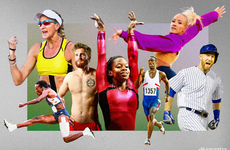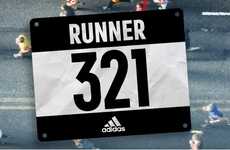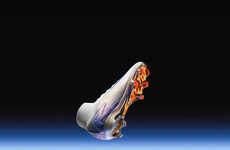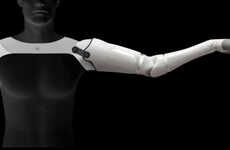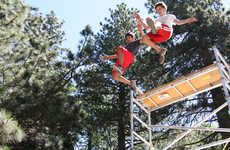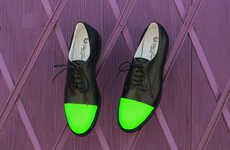
Oscar Pistorius to Become the First Double Amputee to Compete Internationally
Omar Yusuf — August 9, 2011 — Lifestyle
A native of South Africa, Oscar Pistorius will represent his home country for the first time in the 2011 World Championships amid controversy and unrest. Why the controversy? Because the runner, who is capable of clearing 400 meters in 45 seconds, is a double amputee with two carbon-fibre legs.
According to Olympics researchers, the pair of Cheetah Flex-Foot prosthetic legs worn by Oscar Pistorius give him an advantage of 30% efficiency over sprinters with flesh-and-blood legs. Unfortunately, the decision was overturned too late and the awe-inspiring athlete wasn't able to attend Beijing in 2008. But after smashing his previous records at a sprint meet in Rome, Pistorius is finally on the list to represent South Africa this year.
Along with Caster Semenya, who was subjected to a gender test, Oscar Pistorius is not the only athlete whose "humanness" was genuinely contested. But as prosthetic develops to allow more and more injured athletes regain their talent, the Olympic organizations will have to compromise eventually.
According to Olympics researchers, the pair of Cheetah Flex-Foot prosthetic legs worn by Oscar Pistorius give him an advantage of 30% efficiency over sprinters with flesh-and-blood legs. Unfortunately, the decision was overturned too late and the awe-inspiring athlete wasn't able to attend Beijing in 2008. But after smashing his previous records at a sprint meet in Rome, Pistorius is finally on the list to represent South Africa this year.
Along with Caster Semenya, who was subjected to a gender test, Oscar Pistorius is not the only athlete whose "humanness" was genuinely contested. But as prosthetic develops to allow more and more injured athletes regain their talent, the Olympic organizations will have to compromise eventually.
Trend Themes
1. Advances in Prosthetic Technology - Innovations in prosthetic technology are allowing injured athletes to regain their talent and compete at high levels, potentially disrupting traditional notions of athletic ability.
2. Controversy in Sports - The inclusion of athletes with prosthetic limbs, like Oscar Pistorius, is sparking controversy and raising questions about fairness and performance advantages, creating opportunities for discussions and debates within the sports industry.
3. Inclusive Sports Events - The growing presence of athletes with disabilities in international competitions, such as the World Championships, highlights the importance of creating inclusive sports events that accommodate and celebrate the achievements of all athletes, regardless of physical abilities.
Industry Implications
1. Sports Equipment Manufacturing - The development and production of advanced prosthetic devices open up new opportunities for the sports equipment manufacturing industry, as they cater to the needs of athletes with disabilities seeking high-performance gear.
2. Sports Governance and Regulation - The inclusion of athletes with prosthetic limbs and other physical disabilities in international sports events presents challenges and opportunities for sports governance bodies to redefine rules and regulations to ensure fair competition for all athletes.
3. Sports Medicine and Rehabilitation - The integration of prosthetic technology in sports raises the demand for specialized sports medicine and rehabilitation services, offering opportunities for medical professionals to develop innovative techniques and treatments for athletes with disabilities.
0.7
Score
Popularity
Activity
Freshness



